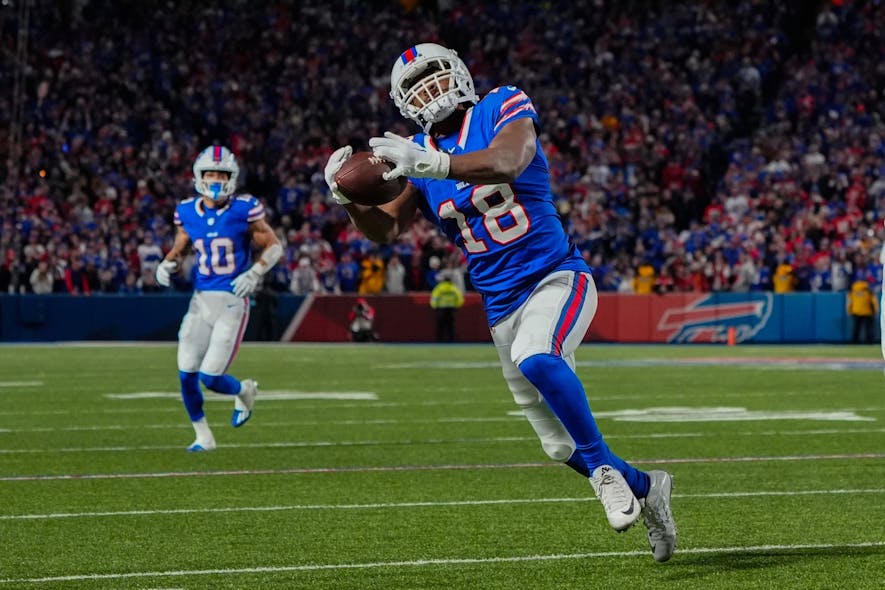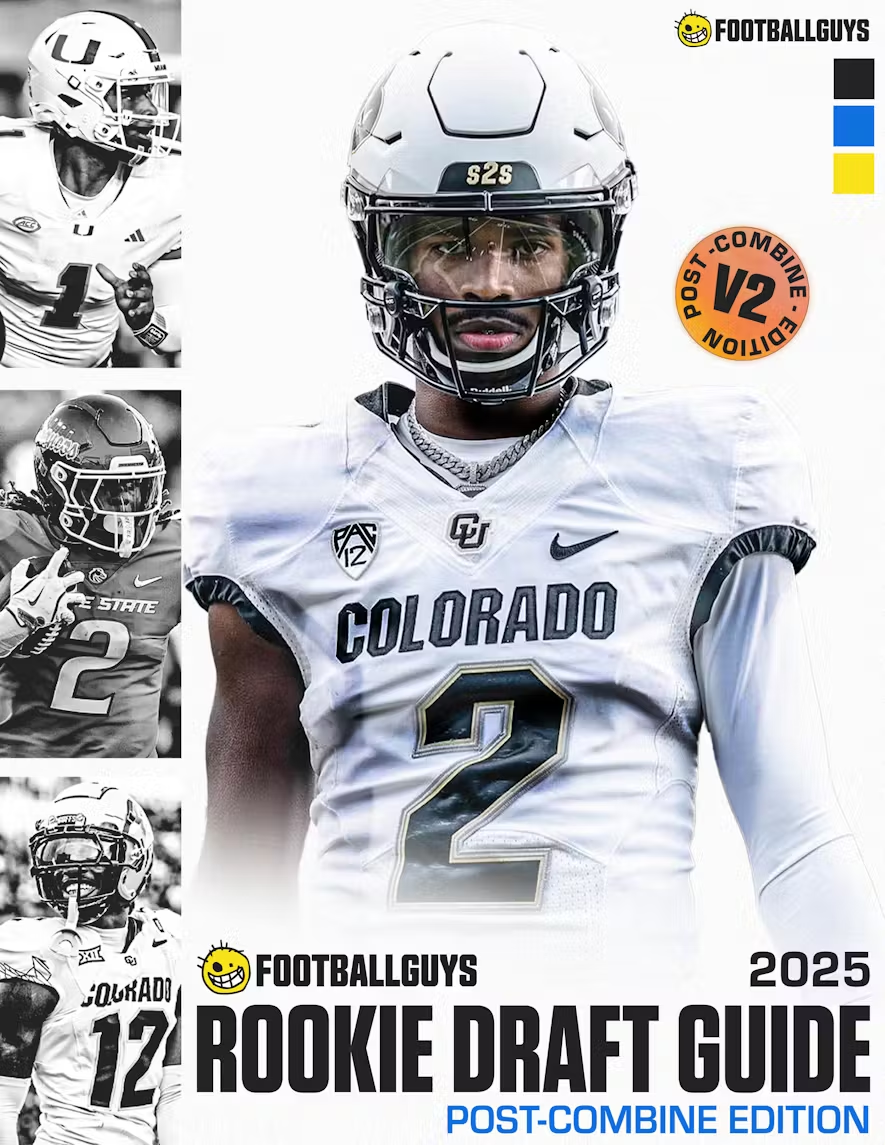For those who are new to the feature, here's the deal: every week, I break down a topic related to regression to the mean. Some weeks, I'll explain what it is, how it works, why you hear so much about it, and how you can harness its power for yourself. In other weeks, I'll give practical examples of regression at work.
In weeks where I'm giving practical examples, I will select a metric to focus on. I'll rank all players in the league according to that metric and separate the top players into Group A and the bottom players into Group B. I will verify that the players in Group A have outscored the players in Group B to that point in the season. And then I will predict that, by the magic of regression, Group B will outscore Group A going forward.
Crucially, I don't get to pick my samples (other than choosing which metric to focus on). If I'm looking at receivers and Justin Jefferson is one of the top performers in my sample, then Justin Jefferson goes into Group A, and may the fantasy gods show mercy on my predictions.
And then because predictions are meaningless without accountability, I track and report my results. Here's last year's season-ending recap, which covered the outcome of every prediction made in our seven-year history, giving our top-line record (41-13, a 76% hit rate) and lessons learned along the way.
Our Year to Date
Sometimes, I use this column to explain the concept of regression to the mean. In Week 2, I discussed what it is and what this column's primary goals would be. In Week 3, I explained how we could use regression to predict changes in future performance-- who would improve, who would decline-- without knowing anything about the players themselves. In Week 7, I explained why large samples are our biggest asset when attempting to benefit from regression.
In Week 9, I gave a quick trick for evaluating whether unfamiliar statistics are likely stable or unstable. In Week 11, I explained the difference between regression and the gambler's fallacy, or the idea that players are "due" to perform a certain way. And in Week 12, I showed how understanding regression can allow us to predict the past as easily as the future.
Sometimes, I point out broad trends. In Week 5, I shared twelve years worth of data demonstrating that preseason ADP held as much predictive power as performance to date through the first four weeks of the season.
Other times, I use this column to make specific predictions. In Week 4, I explained that touchdowns tend to follow yards and predicted that the players with the highest yard-to-touchdown ratios would begin outscoring the players with the lowest. In Week 6, I explained that yards per carry was a step away from a random number generator and predicted the players with the lowest averages would outrush those with the highest going forward.
In Week 8, I broke down how teams with unusual home/road splits usually performed going forward and predicted the Cowboys would be better at home than on the road for the rest of the season. In Week 10, I explained why interceptions varied so much from sample to sample and predicted that the teams throwing the fewest interceptions would pass the teams throwing the most.
In Week 13, I explained that rookies were the only players whose production increased as the season went on and predicted that this year's rookie receivers would score more down the stretch. And in Week 14, I noted that large samples were almost always more predictive than small ones, and therefore "hot" players would likely regress toward their full-season averages.
The Scorecard
| Statistic Being Tracked | Performance Before Prediction | Performance Since Prediction | Weeks Remaining |
|---|---|---|---|
| Yard-to-TD Ratio | Group A averaged 17% more PPG | Group B averages 10% more PPG | None (Win!) |
| Yards per carry | Group A averaged 22% more yards per game | Group B averages 38% more yards per game | None (Win!) |
| Cowboys Point Differential | Cowboys were 90 points better on the road than at home | Cowboys are 48 points better on the road than at home | 3 |
| Team Interceptions | Group A threw 58% as many interceptions | Group B has thrown 66% as many interceptions | None (Win!) |
| Rookie PPG | Group A averaged 8.23ppg | Group A averages 8.64ppg | 2 |
| Rookie Improvement | 54% are beating their prior average | 2 | |
| Hot Players Regress | Players were performing at an elevated level | Players have regressed 26% to their season avg | 3 |
Between injuries and byes, many rookie WRs haven't had an opportunity to show whether they're heating up or not. Despite this, thanks in large part to 20-point outings from Rome Odunze and Jalen McMillan, the rookies have already passed their full-season average, and I think will only rise further from here.
Our hot players have regressed a little bit, but not nearly enough-- we need them to make it at least 66% of the way back to their season averages for a win. But as I always say, weird things happen in small samples, which is why we give this prediction four weeks.
Your Best Team Is Probably Going To Lose
My s*** doesn't work in the playoffs. My job is to get us to the playoffs. What happens after that is f****** luck.
-Billy Beane
We spend all year working to get our teams into the playoffs. We seek out every edge we can exploit. We learn about regression to the mean, and we harness the forces of randomness to carry us onward.
But randomness does not hold a harness well. It is wild, and it is chaotic. And so, despite our efforts, our most likely reward for reaching the postseason is a season-ending loss.
It's important to realize that this is not a failure on our part. It's tempting to think that we can control the chaos; we can find the exact right sleeper against the exact right matchup and push ourselves over the finish line. Or maybe we're focused on the order and not the chaos. Maybe most teams are more likely than not to lose, but certainly not our best ones. Certainly, our 12-2 team, armed with a bye and outscoring all competition by 10 points per game, has at least a better-than-a-coinflip shot at the title.
That's simply not the case. The best team to this point is the team with the best players through 14 weeks. The best players through 14 weeks are more likely to be difference-makers in the fantasy playoffs, too, but it's certainly no guarantee.


